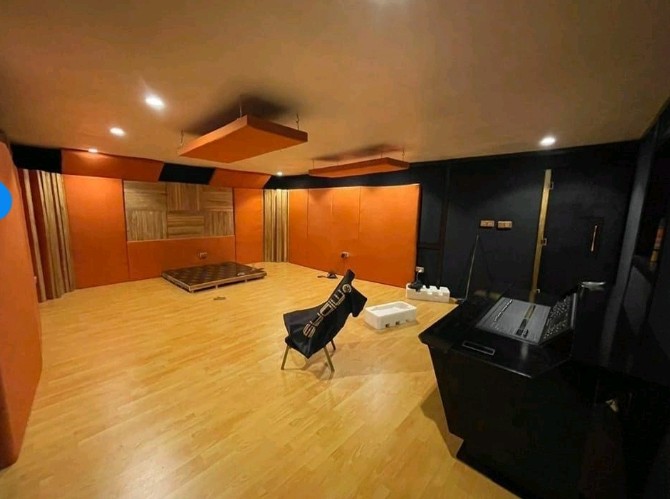
The entertainment industry has long recognized the potential of collaborations between African and international artists. However, a consistent platform to foster these partnerships has been elusive. Recognizing this need, Mr. Austin Ogbuefi, Chairman/CEO and owner of Stanford Recording Studio, is on a mission to bridge this divide. With the launch of this studio, Austin aims to create an environment where creativity and collaboration can flourish, paving the way for groundbreaking work in both music and film.
The concept for Stanford Recording Studios originated from a pivotal conversation with Professor Eleanor Earl, a film, TV, and music executive who is a member of the management team and a Producer for Peace Industry Music Group/Roc Nation, founded by Mr. John D. Boyd. She proposed the idea of building a recording studio as part of Stanford Studios, aligning perfectly with Austin’s vision of creating a hub for global collaborations. This idea was further developed through discussions with Mr. Terence Rosemore, the director of Austin’s film “Different Worlds,” and evolved into a partnership with Mr. Darryl Ross, a multi-platinum-winning producer, to support a Netflix series featuring African urban music and cross-border collaborations.
“Professor Eleanor’s proposal was transformative,” Austin reflects. “She recognized the potential to bring African musicians into the global spotlight, and we knew Stanford Studios could be the ideal platform for this.”
Stanford Recording Studios is designed to be more than just a facility—it is a creative ecosystem. Equipped with state-of-the-art technology, film production facilities, and accommodations for visiting artists, the studio is built to inspire. It will serve as a melting pot for international talent, from musicians to filmmakers, all working together to create culturally rich content. Additionally, the plans to launch Stanford Records and an exchange program between African and Hollywood musicians underscore the studio’s commitment to fostering long-term collaboration.
Austin’s vision extends beyond music and film production. He plans to create a documentary series that highlights the rich cultural heritage of African music and its growing influence on global trends. A major music festival is also in the works, aiming to bring artists from around the world together to celebrate and collaborate. Looking ahead, there are plans to open another Stanford Recording Studio in Atlanta, further strengthening the bridge between African and global talent.
“Stanford Recording Studios is not just a facility,” Austin explains. “It marks the beginning of something much larger. We are creating a platform that will elevate both the Nigerian and global music and film industries by offering a space for true innovation and collaboration.”
With support from industry veterans like Professor Eleanor Earl and Darryl Ross, Stanford Recording Studios is poised to make a significant impact in the entertainment world. As it prepares to open its doors, the future of global music and film collaborations looks exceptionally promising









